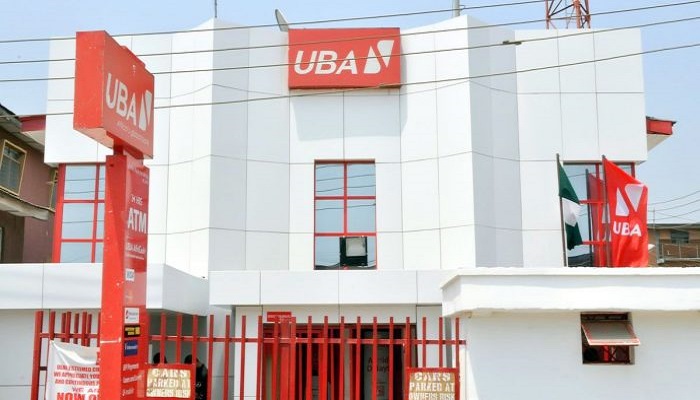The United Bank for Africa (UBA) has announced the successful graduation of 700 young professionals from its Graduate Management Acceleration Programme (GMAP), an initiative designed to nurture the next generation of leaders in Africa’s financial services industry. The development marks another milestone in the bank’s ongoing investment in human capital development, leadership grooming, and sustainable economic empowerment across the continent.
The GMAP, launched by UBA in 2021, serves as a structured training and mentorship platform aimed at equipping young graduates with technical expertise, leadership skills, and practical experience in banking and financial management. The 2025 edition, which took place at UBA’s Academy in Lagos, attracted participants from 20 African countries where the bank operates, reinforcing the institution’s pan-African vision of developing homegrown talent to drive innovation and growth.

Speaking during the graduation ceremony held at the Tony Elumelu Amphitheatre in Lagos, UBA Group Managing Director and Chief Executive Officer, Oliver Alawuba, congratulated the graduates and described the programme as one of the bank’s most impactful human resource initiatives. He stated that the GMAP remains central to UBA’s mission of empowering young Africans with the skills required to excel in a dynamic financial environment.
“Through GMAP, we are investing in Africa’s future leaders,” Alawuba said. “Our goal is to provide young, talented graduates with the tools, confidence, and mindset to succeed in today’s rapidly evolving financial landscape. We believe that when we empower young people, we empower Africa.”
He emphasised that the bank’s continuous investment in people aligns with its long-term strategy of building a resilient and innovative workforce capable of delivering superior value to customers and stakeholders. Alawuba encouraged the graduates to see themselves as ambassadors of excellence, urging them to uphold the bank’s values of enterprise, excellence, and execution.
UBA’s Group Head of Human Resources, Patricia Ayoola, also spoke at the event, noting that the GMAP graduates represent the future of the bank’s leadership. She explained that the rigorous programme includes classroom learning, case studies, mentorship sessions, and on-the-job training across different departments, enabling participants to gain firsthand knowledge of banking operations.
“GMAP is not just a training programme; it’s a leadership pipeline,” Ayoola stated. “We select only the most passionate and determined young people, train them in cutting-edge financial practices, and expose them to real-world challenges that prepare them for global leadership roles. Many of our current managers and executives began their journeys through similar programmes.”
The programme’s structure integrates both theoretical and practical modules covering areas such as risk management, digital banking, credit analysis, corporate finance, customer experience, and regulatory compliance. Participants are also mentored by senior executives from the bank, gaining insights into corporate strategy, innovation, and ethical leadership.
During the event, several graduates shared testimonials about how the programme transformed their perspectives and career aspirations. One of the graduates, Adaora Nwokolo from Nigeria, described the experience as “intense but rewarding,” saying it gave her a deeper understanding of the banking ecosystem and the importance of innovation in driving change. “UBA’s GMAP taught me not only about banking but about leadership, resilience, and purpose. It’s been an incredible journey,” she said.
Another participant from Ghana, Kwame Owusu, expressed appreciation for the opportunity, noting that the programme had enhanced his professional confidence. “This initiative shows that UBA believes in the potential of African youth. It has prepared us to take on leadership roles that can transform our communities and industries,” he added.
UBA’s Executive Director, Finance and Risk Management, Ugo Nwaghodoh, reaffirmed the bank’s commitment to sustaining the programme. He highlighted that developing human capital remains critical to the bank’s growth and competitiveness, especially in an era where technology and innovation are redefining the financial sector.
“At UBA, we understand that the strength of any institution lies in its people,” Nwaghodoh said. “This is why we continue to invest heavily in training and mentorship. Our GMAP graduates will play a vital role in shaping the bank’s digital future and contributing to Africa’s economic transformation.”
In addition to local training, select outstanding participants will have the opportunity to undergo international rotations at UBA subsidiaries in Europe, the United States, and other African markets. This exposure, according to the bank, is intended to broaden their global outlook and strengthen cross-border collaboration.
The GMAP graduation attracted key industry stakeholders, regulators, and academic leaders who commended UBA for its leadership in talent development. The event also featured discussions on the future of work, digital finance, and the role of youth in driving sustainable growth across Africa.
The Tony Elumelu Foundation (TEF), founded by UBA’s Chairman, Tony O. Elumelu, also applauded the initiative, noting that it aligns with the foundation’s philosophy of empowering young Africans to become change-makers and wealth creators. In a message delivered on his behalf, Elumelu urged the graduates to embrace entrepreneurship, innovation, and integrity as they advance in their careers.
“You must remember that your success is tied to Africa’s progress,” Elumelu stated. “Use the knowledge and values you have gained to create positive impact, inspire others, and lead with purpose.”
Analysts have lauded UBA’s GMAP as one of the most structured graduate development programmes in the financial industry, noting that it bridges the gap between academia and professional practice while enhancing the employability of young Africans.
With this year’s batch of 700 graduates, the total number of participants who have passed through UBA’s GMAP since inception now exceeds 2,000, many of whom have risen to senior positions within the organisation. The bank says it remains committed to expanding the initiative in the coming years as part of its contribution to sustainable development and human capacity building across the continent.
Support InfoStride News' Credible Journalism: Only credible journalism can guarantee a fair, accountable and transparent society, including democracy and government. It involves a lot of efforts and money. We need your support. Click here to Donate
